Science fiction and fantasy exist as strata of various subgenres: hard SF and space opera, epic and urban fantasy, steampunk and cyberpunk, and so on. It’s baked into genre fiction, this omnipresence of tropes and conventions that allow picky readers to know exactly what they’re in for.
But some authors say: screw that noise. Why limit yourself to just one genre when you can toss them all across the floor, grease up your book, and roll it around in the resulting debris, picking up a little of this and a little of that? (You know, metaphorically.)
Here are six recent works of SFF that give absolutely no effs about the genre divide.
Gideon the Ninth by Tamsyn Muir
Tamsyn Muir’s gonzo debut is the kind of book that demands to be discussed solely in exclamations: Necromancers! Swords! Skeletons! Secrets! Space castles! Giant bone monsters! Dirtbag romance! Shitty teens! A Poochie reference! But I think it’s also important to admire the structure under all that flash. It’s so easy to fall in love with the hilarious and heartrending journey of walking trashbag and teen swordswoman Gideon from “grudging participant in a contest to determine who will join the inner circle of the galactic emperor” to “grudging participant in a murder mystery in a haunted space castle” to, eventually, “grudging participant in the year’s most adorably combative queer romance” that you might not notice how many genres the author is dragging you through along the way.
Is it a fantasy? Well sure: there’s magic galore, dredged from blood and bone. Is it science fiction? Undoubtedly: Gideon is a citizen of a galactic empire and attempts to book passage on a spaceship that will take her to the front lines of an intergalactic war. Is it a mystery? Maybe that most of all: the plot resembles nothing so much as Agatha Christie on mescaline. In short, it’s impossible to slot into any one genre, and if you’re the kind of reader who can’t condone fantasy chocolate in their SF peanut butter, well, Gideon has a one-finger salute for you.
The Affair of the Mysterious Letter by Alexis Hall
Few fictional characters have been remixed and rejiggered and totally reimagined quite as often as Sherlock Holmes of 221B Baker Street. Holmes is a particularly popular public domain character in SFF circles, where he’s squared off against Cthulhu in the Victorian era and, recast as a queer woman of color, unmasked a conspiracy targeting veterans of the second Civil War in a shattered future America. My favorite Holmesian retelling is also the most unhinged: Alexis Hall’s The Affair of the Mysterious Letter is an excellent mystery in the style of Arthur Conan Doyle, a slightly seedy affair that finds its uptight Watson stand-in being yanked along by the deductions of a possibly quite mad detective. But it is so much weirder than that.
In this case (pun intended), Watson is Captain John Wyndham, a trans man who has recently returned from the front lines of an inter-dimensional war in which he suffered a wound from a time-traveling bullet. Our Holmes is the sorceress Miss Shaharazad Haas, who investigates a blackmail scheme targeting her former lover (one of many, all of whom have good reason to hate Haas with a gleeful vengeance). Solving the mystery—which unfolds through Wyndham’s decidedly understated narration as he writes up his adventures for serial pulp publisher whose editors keep trying to make him delve into lurid detail—will take them through dimensions, into the mirrored halls of a psychic prison, and beyond the boundaries of the legendary city of Carcosa, pitting them against salty vampires, mad gods, and fearsome pirates. There’s weird magic and weirder tech and horrors most cosmic, all in the service of a truly satisfying whodunit.
Empress of Forever by Max Gladstone
Max Gladstone is the guy who earned a Hugo nod for a series that mashes together dead gods, necromancy, and contract law, so you won’t be surprised to learn his first stab at novel-length sci-fi is just as freewheeling.
This is space opera at its most operatic, gleefully taking advantage of that old Clarke adage about sufficiently advanced science being indistinguishable from magic. It tells the story of Vivian Liao, a billion tech genius in a climate-scorched near-future Earth who fakes her own death to escape a corporate coup and, through quantum shenanigans, finds herself transported to a distant universe ruled over by an all-powerful green goddess who can destroy planets on a whim and is worshiped by monks who soar through the stars in spaceships made of stained glass. Literally marked for death by the goddess’s hand, Vivian escapes and assembles a motley crew of allies (if some of them only very tentatively so), including a disgraced zealot, a girl born to meld her mind with a ship, a warlord with a death wish, and a cloud of grey goo.
Though Gladstone throws around a lot of ideas sprung from classic SF (nanotech, artificial intelligence, multiple dimensions, a mind-expanding vision of the future of cloud computing), all of them are taken so far over the top that they’ve basically ceased to resemble science fiction and are something closer to bizarro space magic. And I mean that in the most enthusiastic, double thumbs-up way.
The Library at Mount Char by Scott Hawkins
Like a mutated cousin of Neil Gaiman’s American Gods sprung from Clive Barker’s Lament Configuration, Scott Hawkins first and, alas, only novel to date is one of the most original works of nightmarish genre mashing I’ve ever encountered. To even begin to describe the plot is to rob you of the terrible joys of discovering it yourself, but it also isn’t the kind of book you can see coming, so here goes: twelve children survive a disaster that destroys half a city, and are taken in by a godlike being known only as Father, to be raised within the confines of—and in service to—an immense library that holds the secrets to all of existence. Each child is assigned a discipline to master—think Harry Potter, but instead of Hogwarts houses, the children are sorted into “Languages” or “Death and Horror” or “The Future.” Though he seems to care for them, Father is a cruel sort of master; his demands are exacting and the punishments for not meeting his expectations are…severe.
As the novel opens, Father has vanished, and the children are at a loss. One of then, Carolyn, who can speak any language ever imagined, unites with several of her adoptive brothers and sisters to figure out where he went. The more interesting question, of course, turns out to be why they are all there in the first place. Needless to say, the answer is a real cosmic mindfuck.
What fascinates me about the book’s genre savvy is how closely Carolyn’s quest hews to the conventions of the commercial thriller, if one were slathered in phantasmagorical horror. You can almost imagine cheap mass market paperback copies of The Library at Mount Char lining the racks of the Airport of the Elder Gods.
Middlegame by Seanan McGuire
Seanan McGuire has written a story in just about every corner of SFF, and her 2019 novel Middlegame—which is, incidentally, the best thing she’s ever written—often seems like her attempt to fill just about all of them at once.
Like Mount Char, this is a truly apocalyptic coming-of-age story. The unwitting children who are fated to change—or end—the world this time around are a pair of twins, Roger and Dodger, who are separated at birth but grow up intertwined thanks to a psychic connection that is the result of their strange origins. Namely, they were brought into the world via alchemical means by a quasi-immortal named James Reed, himself the rebellious creation of one Asphodel Baker, the greatest scientist magician who ever lived (and a fantastic children’s author to boot). Reed believes that manipulating the twins will give him the power to alter reality and become a god. As their relationship grows and changes over the years, Roger and Dodger discover their shared destiny, and come to have other ideas…
This is all the stuff of fantasy, of course, but McGuire’s worldbuilding is so exacting, it plays out like science. Where Roger is able to change the world through an innate mastery of language, Dodger has a strong head for numbers and can see the equations that underlie all of existence. Alchemy is, of course, a magical science in and of itself, an attempt to command and codify the impossible. This all plays out in a grab-bag of cross-genre tropes: time loops, alternate dimensions, genetic engineering, blood magic and more. If you don’t know what a Hand of Glory is now, read this book and never forget.
Saga by Brian K. Vaughan and Fiona Staples
There is perhaps no other work of modern SFF that fits on this list better than this graphic novel, er, saga from the writer/artist team of Brian K. Vaughan and Fiona Staples. Envisioned as a nigh-unadaptable space-set bildungsroman, it follows the unfortunate life and times of Hazel, the only inter-species child ever born to parents from opposite sides of a galactic war.
Hazel’s parents are Marko and Ilana, ex-soldiers and sworn enemies who find love on the battlefield and mutually decide to desert their respective causes and make a go at marriage. They soon find out that the truly defining struggle of their lives is not the one between the worlds of Landfall and Wreath, but the impossible test that faces every parent, even here on dull old Earth: raising a child who won’t just go on to repeat all of your stupid mistakes.
Saga’s execution is as offbeat as its setup: its universe is truly weird, a place where magic definitively exists, as do ghosts, as do sentient robots with heads shaped like TVs, as do beasts out of fantasy stories and aliens out of your nightmares (but don’t judge a book by its cover, or an armless spider-bodied assassin by her vast number of eyes).
Vaughan and Staples are firmly convinced Saga can only exist as a comic, and that’s not only because of the scope of the story, or its metafictional asides, or its turn-on-a-dime tone, or the vast budget it would take to realize its visuals. It’s also because the sort of wider audience necessary to make it financially viable wouldn’t know what to make of the thing. Sure, Star Wars mixes together science fiction and magic, but Saga mixes together science fiction and everything. It is, and I can’t emphasize this enough, what it is.
That closes out my list of six examples, which is by no means exhaustive…so what are your favorite examples of fearlessly genre-defying SFF?
Originally published March 2020.
Joel Cunningham was the founding editor of the B&N Sci-Fi & Fantasy Blog (RIP), where he got to explore the galaxy for 5 years and picked up a Hugo Award (well, tangentially) along the way. He lives in New York City with his wife and two children, despite the fact that this is a thing no sane person would choose to do. He tweets @joelevard.










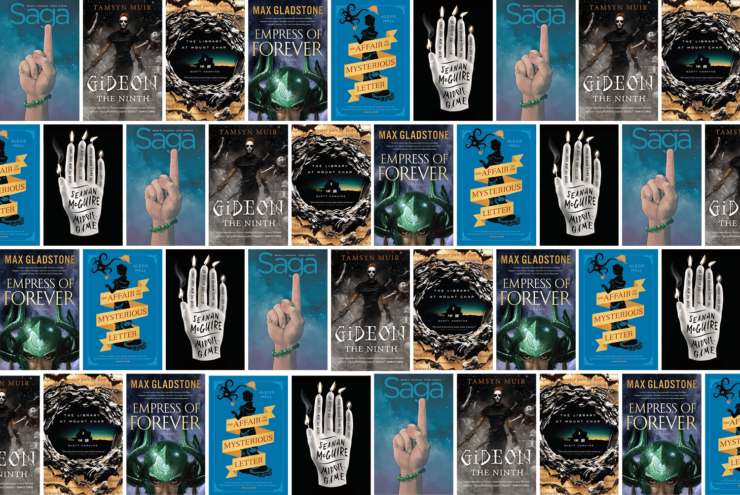
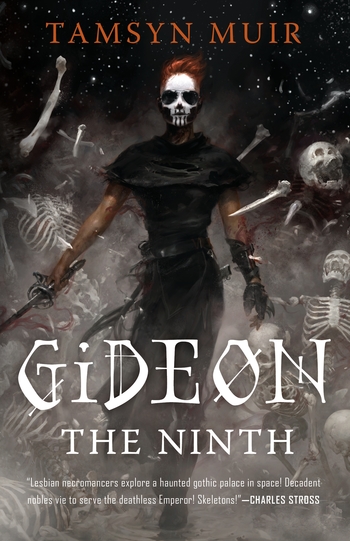
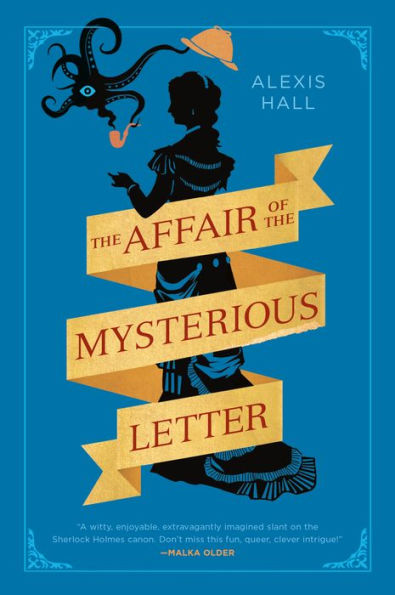
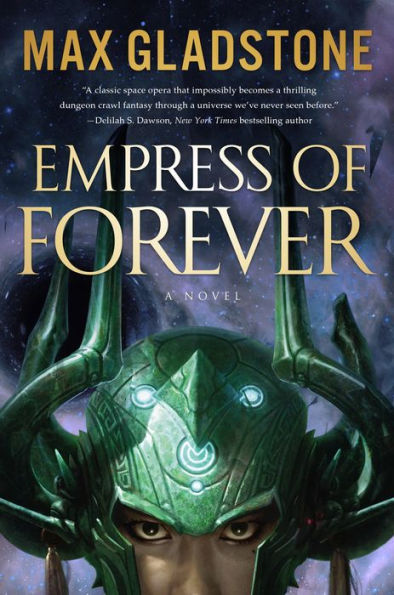
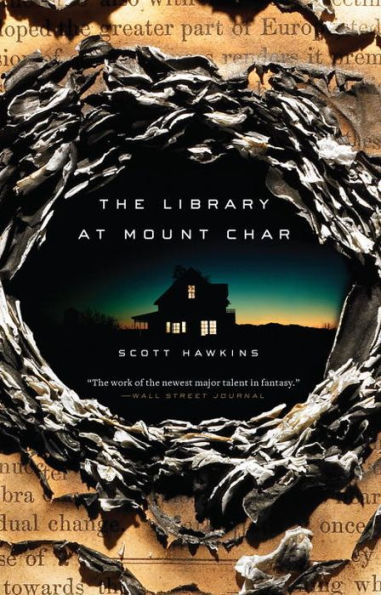
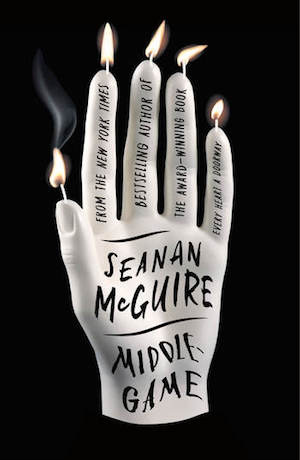
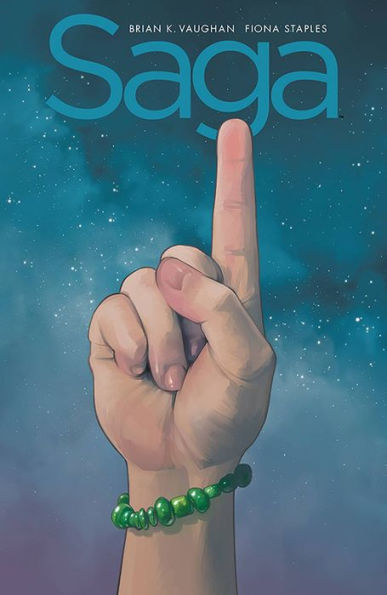
Several recent Hugo nominees have been genre-benders. Aside from this year’s McGuire and Muir, 2017-2019 had Yoon Ha Lee’s consecutive nominees in the Machineries of Empire series (Ninefox Gambit, Raven Stratagem, Revenant Gun). 2017’s All the Birds in the Sky is a very similar kind of tale to Middlegame. I considered NK Jemisin’s Broken Earth (nominated and won 2016-2018 The Fifth Season, The Obelisk Gate, The Stone Sky) to be SF with a magical component (and was disappointed that it wasn’t pure SF).
Where’s Vita Nostra by Marina and Sergey Dyachenko?!
I recommend The Bone Clocks by David Mitchell.
Oh and has anyone heard anything about Saga restarting? It’s been close to two years now. Are they waiting for Hazel to grow up?
The only one on this list that I haven’t read is The Affair of the Mysterious Letter. Given how amazing the rest of them are, I feel like I should give that one a try! (Middlegame in particular blew me away and I am still disappointed it didn’t get a Hugo nod.)
My pick for the ultimate slipstream novel (and I still prefer that term, even though it’s mostly out of fashion) is Karen Joy Fowler’s Sarah Canary. It just doesn’t get any better.
Joel, always good to see anything you write. I have read and loved five of these six. And the last one “The Affair of the Mysterious Letter” has been on my TBR list for some time. I think I need to push it up the list some.
“Stealing the Elf King’s Roses” by Diane Duane! A sci fi fantasy murder mystery legal thriller in which an attorney from a high techalternate universe Los Angeles looking into the murder of an elf uncovers a multiverse spanning conspiracy!
When I was first discovering Anne McCaffrey’s Pern series, I went to get the first book from the library – the one where the orphaned princess uses magic time travel to bring back the dragon armies to fight the scourge from the skies. I accidentally got the last book (at the time) in which a giant supercomputer is waking up. This was very confusing to me at the time. And yet it makes perfect sense in universe!
Oh yeah to all of these + most of those in the comments (& I really need to read The Affair of the Mysterious Letter.) I’d add my plug for Diane Duane’s Stealing the Elf-King’s Roses being really great.
To me, Vita Nostra isn’t so much cross-genre as purely unclassifiably weird. Maybe it could form its own genre of ‘bizarrely supernatural Slavic boarding schools’, together with Mariam Petrosyan’s The Gray House.
Another book I’d throw onto this list, published since this article came out this spring, is Katharine Addison’s Angel of the Crows, a different alt-universe Sherlock Holmes, in which John Watson is a wounded veteran from the war in Afghanistan, but a war against Fallen Angels, quite a few other things are very different, and alt-Holmes and Watson end up facing Jack the Ripper. I kept being delightfully surprised by it.